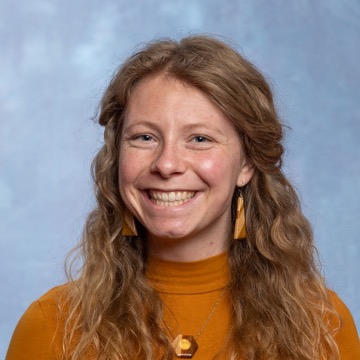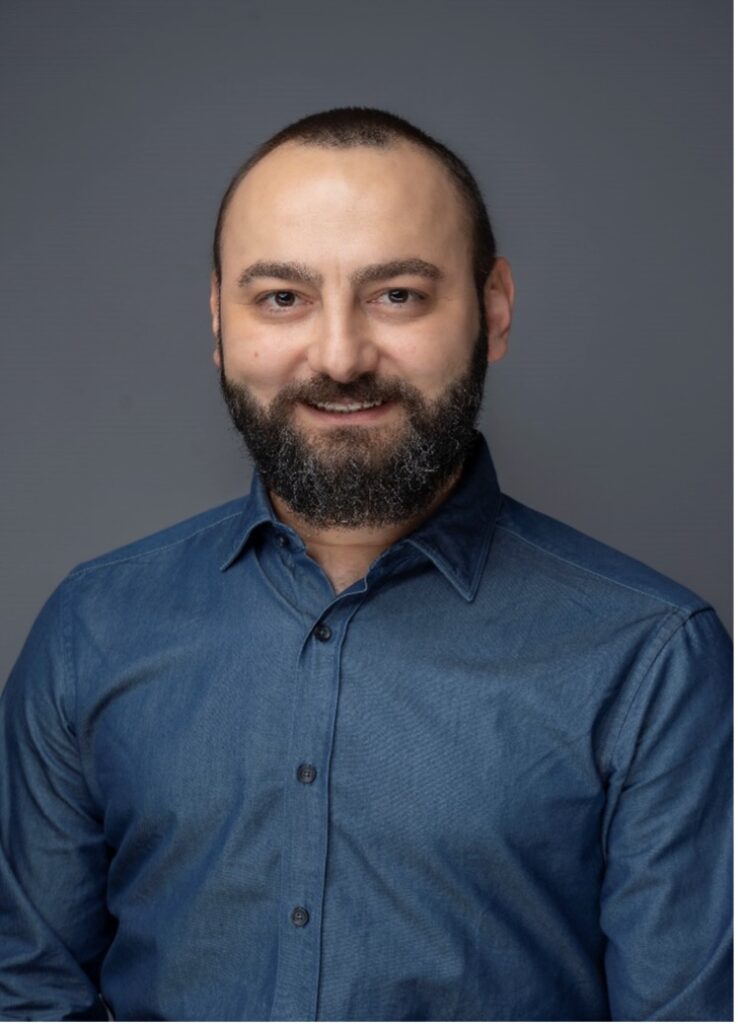In recognition of the International Day of Education, the EDGE Office is excited to showcase graduate students’ perspectives on the role of education in peacebuilding. As part of this initiative, Filiz Oskay interviewed PhD candidates Jamie Herman (Educational Studies/Philosophy and History of Education) and Onur Ozkaynak (Teaching and Learning/ Bilingual and Multilingual Education) to gain insight into their perspectives on how education can serve as a catalyst for peace and social transformation.

Jamie Herman
- How do you see education contributing to peacebuilding in today’s world?
One of the things I’m encouraged by in working with undergraduate students at Ohio State is how interested they are in talking about tricky problems and global concerns outside of the classroom. Students are interested in toying with the questions that make living together with others tough. When students come to my office hours, host evening events with their student organizations, and carry on a conversation with a classmate after class, I see their desire to solve problems in the community. When classrooms and educational spaces can serve as an invitation to engage with one’s peers about something that keeps you both up at night, we, as educators, are building the skills of peacebuilding by inviting students to share their puzzles with one another.
- What role do you believe educators and students play in fostering a culture of peace?
Both educators and students have immense potential and responsibility to care for those with whom they are in the community in the classroom. Because education is something everyone is entitled to and often occurs in communal spaces, each participant has a role to play in making the space one that is conducive to education for all. That’s an immense responsibility. But even when young students learn to share, voice their feelings, and ask their friends how they’re doing each day, they are learning to be stewards of this responsibility to contribute to a culture of peace. Educators can and do contribute to this skill-building in peace and care by modeling that care to students and fostering their skill development. When students learn that shared educational spaces require each member to care for their neighbor, they are learning the fundamental skills of peacebuilding.
- Can you share a personal experience perspective that illustrates the impact of education in promoting peace?
In my role at Ohio State, I facilitate civil discourse dialogues with students. As a student in EHE, this has been one of the best ways to translate my research into practice by creating spaces where students can come together to tackle the puzzles that animate their lives. On campus, this includes facilitating dialogue between students who disagree about global conflicts, but who are interested in hearing the perspectives of their peers. In a bi-weekly program, I run as part of my role with Ohio State’s Center for Ethics and Human Values, a colleague and I facilitate “Dorm Dialogues”: an open dialogue conversation where undergraduate students can discuss the questions that arise from living in the community. Attendees of these dialogues share how cathartic it is to share their experience with other students and to hear that students in different years, with different living situations, face similar problems. They give each other tips on navigating conflict, and as facilitators, my colleague and I help them explore the ways civil discourse tactics could be used to address disagreements with their roommates. Though their puzzles may seem trivial at first, through these dialogues, we’ve created a community where students explore their puzzles, practice articulating their frustrations, and brainstorm strategies to tackle these problems. As educators, we’re facilitating a space for students to learn from one another, find community, and develop skills in civil discourse and conflict resolution. These are the building blocks of peacebuilding.

Onur Ozkaynak
1. How do you see education contributing to peacebuilding in today’s world?
I believe education can only meaningfully contribute to peacebuilding if it aims to actively dismantle ignorance, bridge divides between those perceived as “different,” and prioritize cultivating empathy and critical thinking over merely material outcomes. Yet, when we look at the relentless conflicts in today’s world, it’s evident that education, as it stands, has largely failed as a peacebuilding force. Nevertheless, this isn’t a flaw of education itself but of how we’ve instrumentalized it. To reclaim its potential, education must nurture individuals who interrogate inherited prejudices, engage in uncomfortable but necessary conversations, and dismantle systemic inequities—not just in theory but through curricula that center marginalized histories and pedagogies that ignite radical transformation. Otherwise, we risk perpetuating cycles of violence under the guise of “progress.”
2. What role do you believe educators and students play in fostering a culture of peace?
Fostering a culture of peace starts with transforming our classrooms into communal spaces where diversity and differences are not just tolerated but celebrated. Educators and students should cultivate this culture by actively promoting dialogue, understanding, and collaboration among students from various backgrounds. In these environments, educators serve as facilitators of peace by modeling respectful communication and teaching conflict resolution skills. Students, on the other hand, are empowered to become ambassadors of peace, applying these principles in their interactions both within the school and in the broader community. Together, they can work to create a learning atmosphere that values empathy and mutual respect, which are essential for building and sustaining peaceful societies.
3. Can you share a personal experience or perspective that illustrates the impact of education in promoting peace?
As a language educator and a doctoral candidate in multilingual language education, I see language education not just as a means to enhance linguistic proficiency but as a powerful mechanism that can either perpetuate existing power structures in societies or challenge them. Consequently, I design my syllabi to foster environments that encourage tasks emphasizing the importance of diversity and respect. While this isn’t tied to a specific classroom instance, my teaching experiences across Turkey, Finland, and the USA have shown me how this approach can nurture a culture of peace among diverse student groups.

